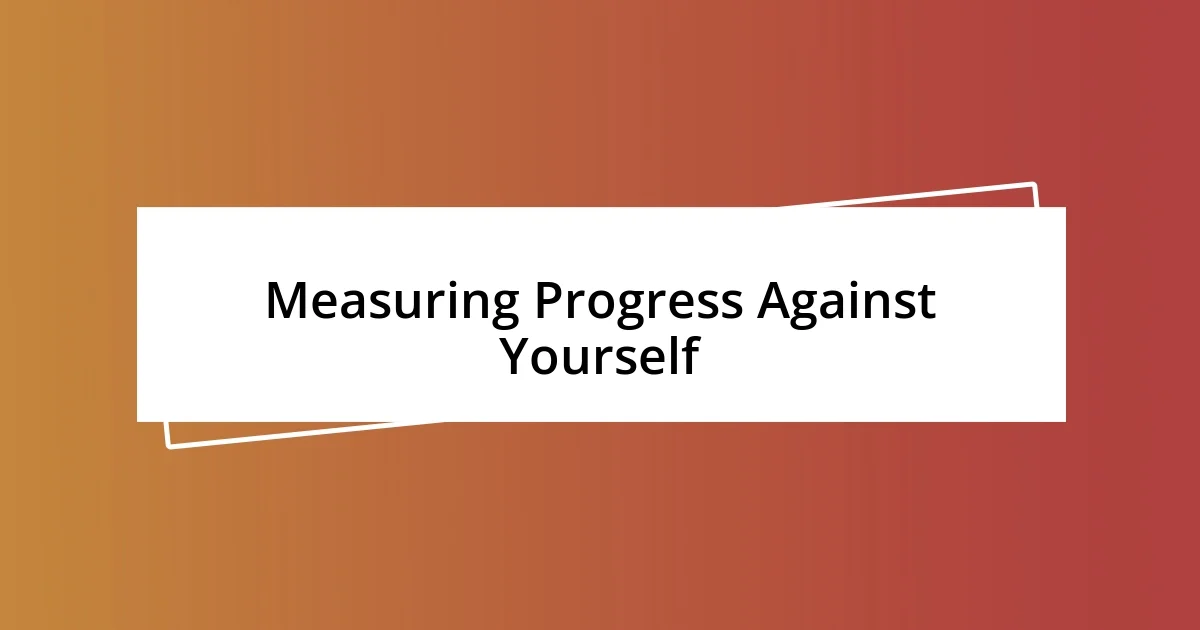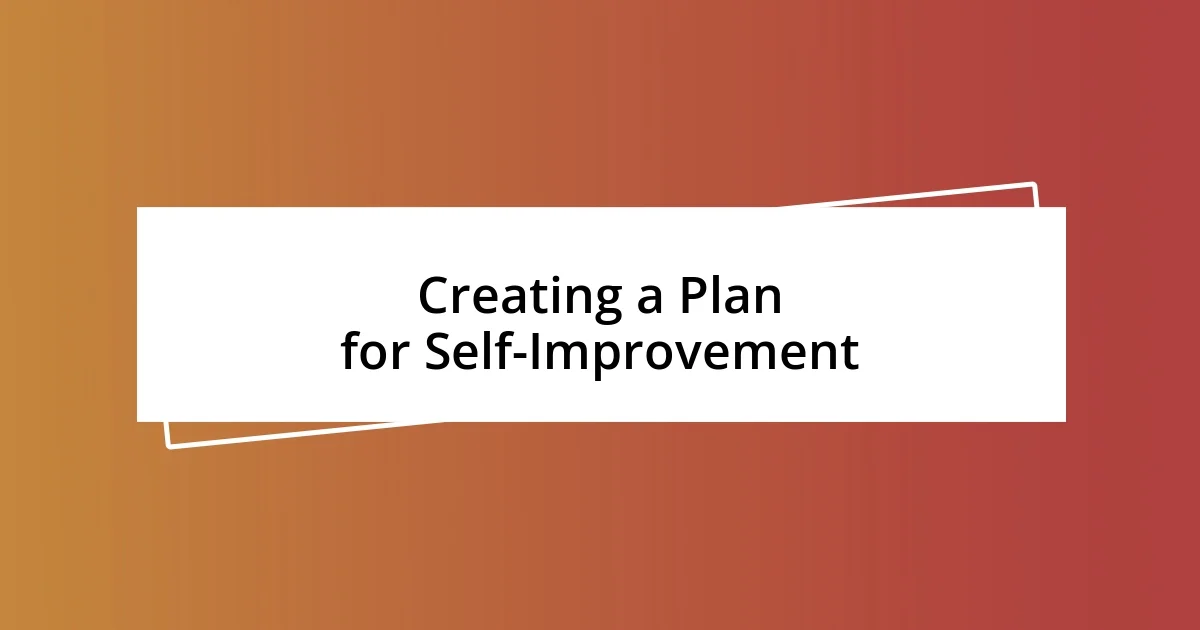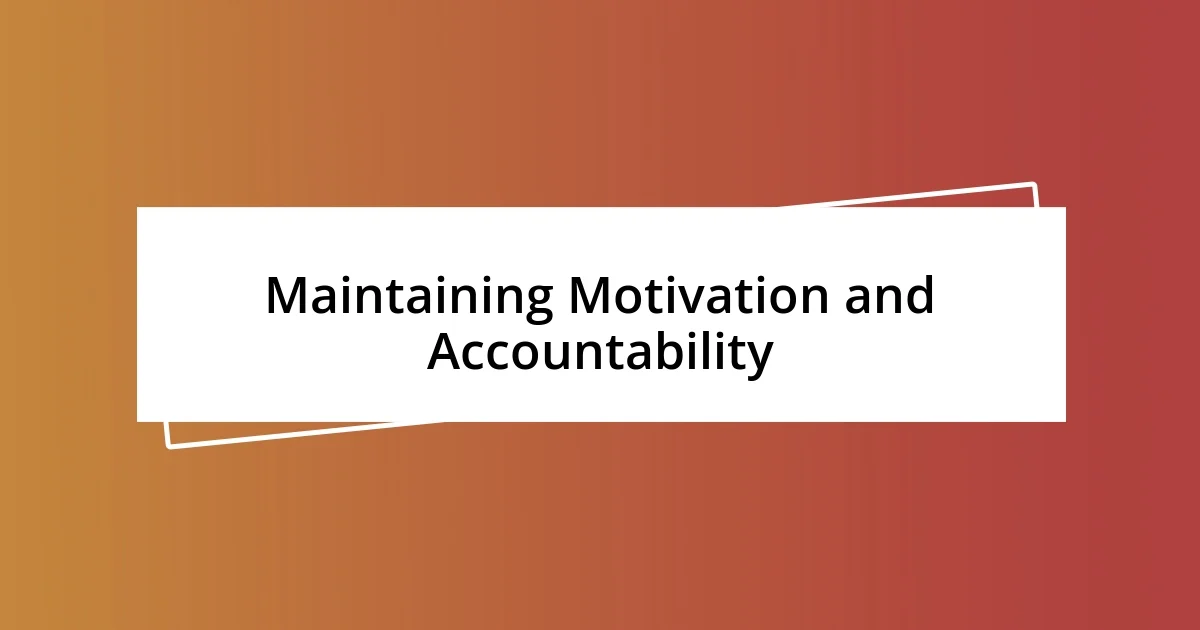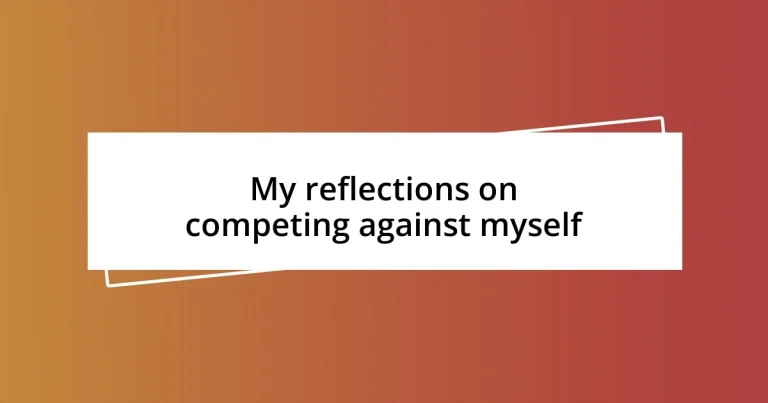Key takeaways:
- Self-competition fosters personal growth by encouraging individuals to focus on their progress rather than comparing themselves to others.
- Setting clear, actionable goals and celebrating small wins are crucial for meaningful self-improvement and maintaining motivation.
- Regular reflection on one’s journey enhances self-acceptance and helps track progress, transforming challenges into opportunities for growth.

Understanding Self-Competition
Self-competition is an introspective challenge that encourages personal growth. I remember a time when I set a fitness goal to run my fastest mile. Instead of focusing on what others were doing, I zeroed in on my progress, pushing my limits with each run. It’s fascinating how turning the focus inward can lead to breakthroughs that are uniquely satisfying.
Sometimes, I wonder why we often gauge our worth against others rather than ourselves. This mindset adjustment can feel uncomfortable at times. One experience that stands out for me was competing in a local art contest. I chose to create a piece that reflected my journey rather than trying to mimic popular trends. Surprisingly, this authenticity resonated more with the judges than I anticipated.
The beauty of self-competition lies in its ability to foster resilience. I often find myself reflecting on setbacks, like the time I fell short in an academic pursuit. I learned that each stumble provided invaluable lessons, gradually shaping my understanding of success. Isn’t it remarkable how much we can discover about ourselves when we allow our inner dialogue to flourish?

Setting Personal Goals for Growth
Setting clear personal goals is crucial for meaningful growth. I remember when I decided to tackle my procrastination. Instead of tackling everything at once, I created smaller, actionable goals like setting aside specific time blocks for focused work. This shift not only broke my tasks into manageable pieces but also gave me a sense of accomplishment each day.
- Define what success looks like for you: Visualizing your end goal makes it more tangible.
- Set SMART goals: Make them Specific, Measurable, Achievable, Relevant, and Time-bound.
- Celebrate small wins: Acknowledge each step forward, no matter how small, to maintain motivation.
- Reflect regularly: Take time to assess your progress and adjust your goals as needed.
- Stay adaptable: Life can be unpredictable; flexibility in your goals will help you stay on track.
Using this mindset, I’ve found that even seemingly insignificant milestones can lead to significant shifts in my perspective, enhancing my overall journey.

Measuring Progress Against Yourself
Measuring progress against yourself is a deeply personal journey. I recall my experience training for a marathon. Instead of comparing my times with seasoned runners, I focused on how I improved each week. I tracked my pace, distance, and even my recovery rates. Each small victory filled me with motivation, reminding me that my real competition was who I was yesterday.
It’s interesting how self-reflection can lead to growth that feels truly organic. Once, during a photography project, I decided to challenge myself by focusing on a different theme each month. I documented my progress through a visual diary, noticing how my skillset evolved. Those side-by-side comparisons illuminated my gains far better than any critique I could have received from others.
At times, I ask myself what measuring progress against myself adds to my life. I find it builds a foundation of self-acceptance. For instance, when I revisited an old painting after a year, the comparison was enlightening. It wasn’t just about technique; it showed how my perspective had broadened. Looking back, I realized that every brushstroke was a testament to my journey, affirming that the evolution I often chase is about embracing my narrative.
| Measurement Focus | Impact |
|---|---|
| Consistent Tracking | Allows identification of small victories over time. |
| Visual Documentation | Helps observe growth in skills and style. |

Overcoming Challenges in Self-Competition
Overcoming challenges in self-competition often requires confronting our inner doubts head-on. I vividly remember a moment when I hesitated to share a recent writing project I’d completed. What was holding me back? I had convinced myself it wasn’t good enough. But then, I asked myself: who was I trying to impress? By releasing that fear and simply sharing my work with friends, I uncovered their supportive feedback and encouragement—proof that my self-imposed standards were stricter than necessary.
There are times when the weight of comparison can feel overwhelming. I experienced this when I took up rock climbing; watching others scale walls effortlessly made me question my abilities. It took a heartfelt conversation with a fellow climber to realize that everyone starts somewhere. The key to overcoming these challenges is to grasp the beauty of progress over perfection. Every small success—whether it’s reaching a new height or mastering a difficult technique—reminds us of our individual battles.
I find that nurturing self-compassion is crucial in this journey. Reflecting on my experiences, such as completing a challenging yoga class, I often remind myself that each attempt brings growth, even if it doesn’t look the same as someone else’s. Recognizing that I’m competing against my own limitations helps me celebrate every effort, my journey becoming a more fulfilling adventure. When was the last time you recognized your personal growth? Embracing this mindset can transform the way you view challenges, turning them into stepping stones for self-discovery.

Creating a Plan for Self-Improvement
Creating a plan for self-improvement starts with setting clear, actionable goals. I remember when I decided to enhance my public speaking skills—something that once terrified me. I broke it down into manageable steps: joining a local Toastmasters club, practicing speeches in the mirror, and even recording myself to critique my performance. Each step felt like a mini-success, propelling me forward on my journey.
It’s critical to establish a timeline for these goals as well. I once committed to a three-month fitness challenge that intertwined with my self-improvement strategy. Each week, I would evaluate my progress, adjusting my workouts based on how my body responded. It was empowering to watch myself grow stronger, with the timeline serving as both motivation and accountability. Have you ever created a timeline for your goals? It can feel transformative to see the progress laid out in front of you!
Finally, I find it essential to incorporate reflection into my plan. After completing a project or reaching a milestone, I carve out time to journal my thoughts and feelings about the experience. This practice allows me to celebrate my achievements and identify areas for further growth. For instance, after finishing an art class, I vividly recalled my initial struggles with color mixing, and through reflection, I could appreciate just how far I’d come. What about you? How do you reflect on your journey? Taking a moment to pause and appreciate your progress can really deepen your understanding of self-improvement as a personal voyage rather than just a finishing line to reach.

Maintaining Motivation and Accountability
Maintaining motivation is like tending to a garden; it requires constant care and attention. I’ve learned this firsthand during my marathon training. On days when fatigue weighed me down, I would visualize crossing that finish line, each step fueled by the thought of my achievement. This mental imagery became a powerful tool, keeping my motivation alive even when my body wanted to quit. How do you ignite your motivation when the going gets tough?
Accountability takes on many forms, and for me, it often comes from sharing my goals with others. I’ve found that telling friends about my ambitions—like mastering a complex recipe—creates a sense of commitment I can’t easily shake off. When I knew friends were eager to hear about my culinary adventures, I felt a responsibility to explore, experiment, and learn. Have you considered who in your life can help hold you accountable?
Reflection also plays a vital role in staying motivated and accountable. I’ve made it a habit to review my progress regularly, jotting down my thoughts in a notebook. It’s interesting to see how a simple act of writing can clarify my feelings and reignite my passion for my goals. I remember flipping back to a particularly difficult week during my painting class and realizing how much I had grown since then. Reflecting on those struggles reminded me that perseverance is part of the journey, and it fills me with renewed courage to keep pushing forward. Don’t you think taking time to reflect on your experiences could spark something new in your pursuit?














